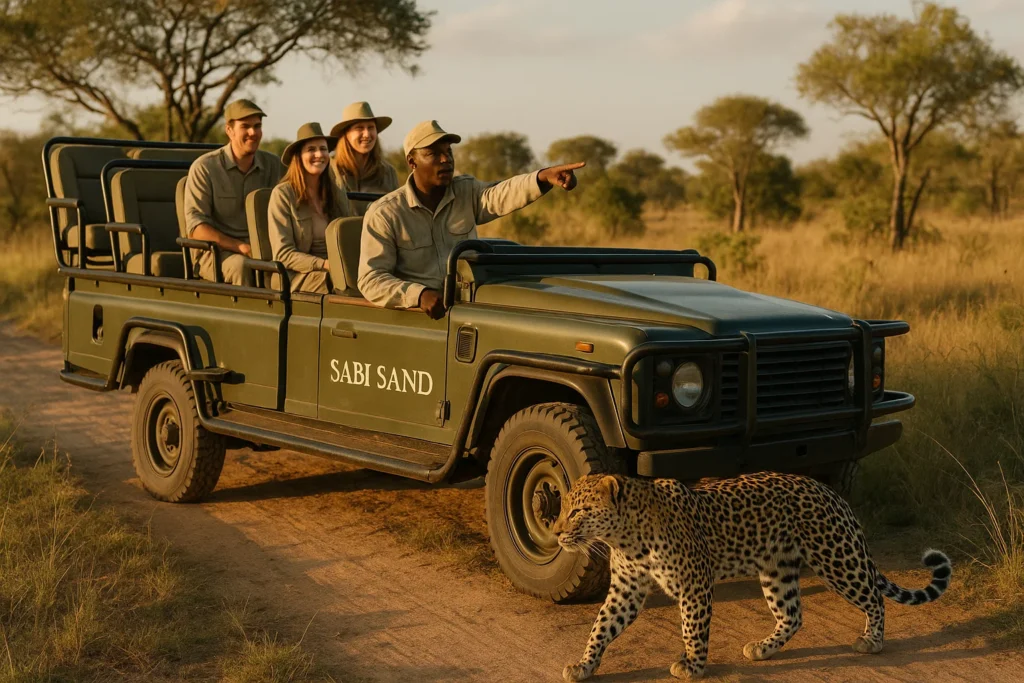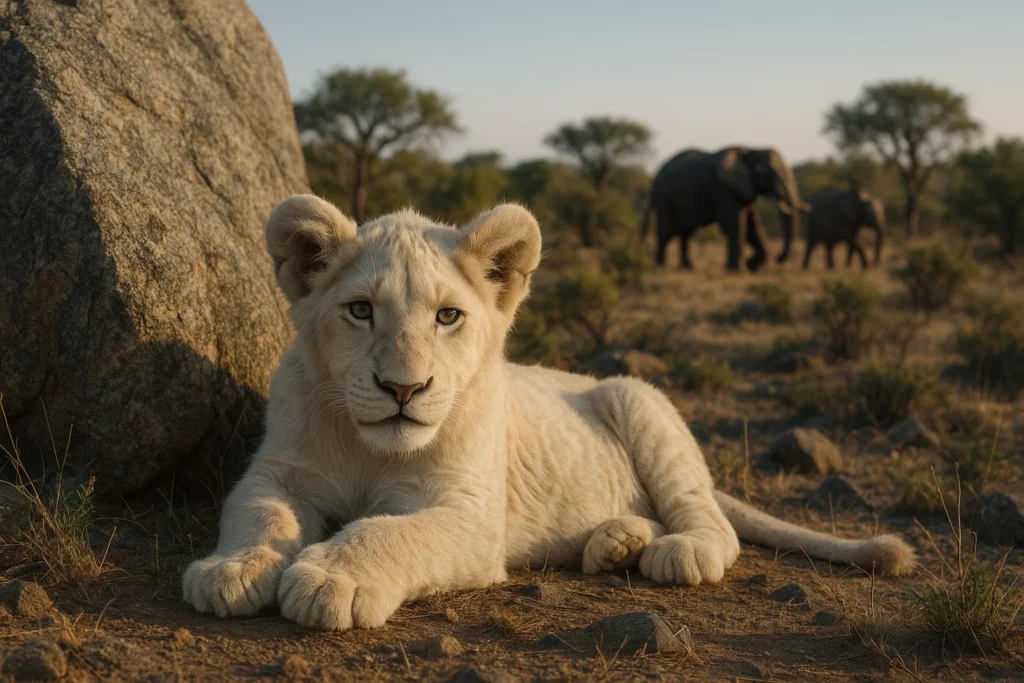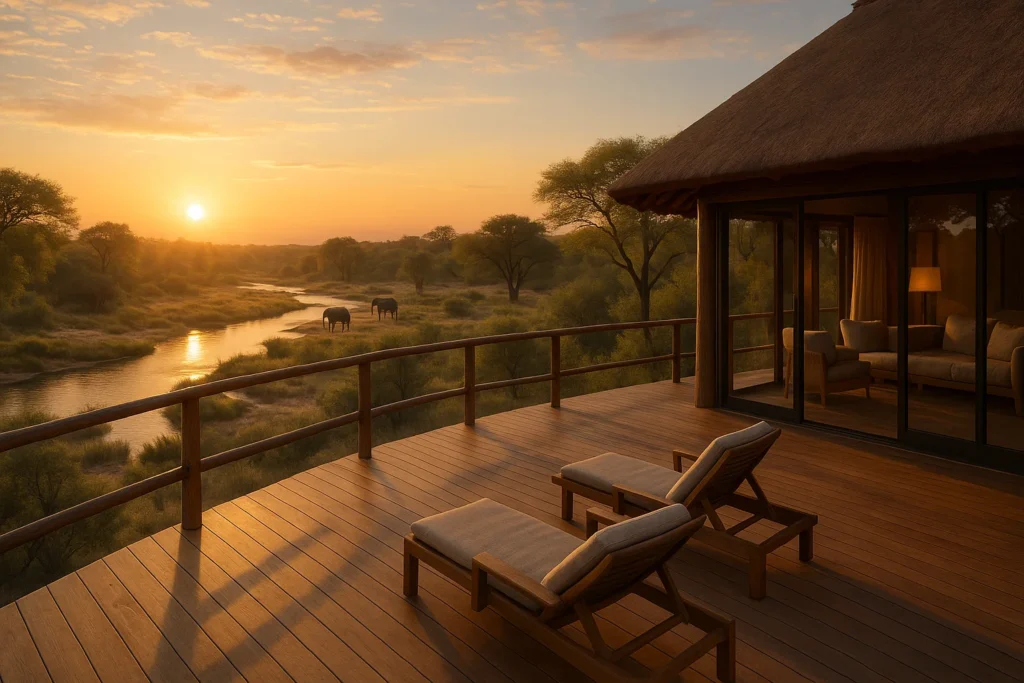Sabi Sand Game Reserve in South Africa is one of the continent’s premier safari destinations — and one of the safest. But for first-time visitors, it’s natural to have questions. Is malaria a risk? Are wild animals dangerous? What about medical care? This guide breaks down everything you need to know to travel with confidence.
Why Sabi Sand is considered a safe safari destination
Expert-guided experiences
All game drives are conducted by professional rangers and trackers, often with years of experience. They are trained in animal behavior, guest safety, and bush protocols, ensuring visitors can enjoy close wildlife encounters without risk.
Private reserve advantages
As a private reserve bordering Kruger National Park, Sabi Sand has controlled access. Only guests staying at lodges can enter, which greatly reduces crowding and enhances safety. Poaching and crime within the reserve are rare thanks to constant patrols and community partnerships.
Familiarity with wildlife
The animals in Sabi Sand are well-acclimated to safari vehicles. They don’t see them as threats, which reduces unpredictable reactions. This habituation allows for safe, respectful viewing — even of the Big Five.
Health and safety: what to consider
Malaria risk
Sabi Sand is in a malaria zone, particularly during the rainy season (November to April). However, the risk is low compared to other African regions.
Prevention tips:
- Take antimalarial medication prescribed by your travel doctor.
- Use insect repellent with DEET.
- Sleep under mosquito nets (provided in most lodges).
- Wear long sleeves and pants in the evening.
Vaccinations
Make sure you’re up to date on routine vaccines (like tetanus and MMR). Additional recommended vaccinations include:
- Hepatitis A
- Typhoid
- Yellow fever (if arriving from an endemic country)
Water and food safety
Lodges in Sabi Sand maintain high standards. Most use purified water and serve well-prepared meals. Still, drink bottled or filtered water when in doubt.
Emergency medical care
- Lodges have first aid supplies and trained staff.
- Serious emergencies may require evacuation to Nelspruit or Johannesburg.
- Travel insurance with medical evacuation coverage is essential.
Wildlife safety tips
- Never leave your vehicle unless instructed by your guide.
- At unfenced lodges, always request an escort when walking after dark.
- Listen to pre-drive briefings — they’re important.
- Do not approach or feed animals under any circumstance.
Wildlife-related incidents are extremely rare when guests follow instructions.
Personal security and lodge environment
Sabi Sand is a secure, low-crime area. Lodges are staffed 24/7, and most offer night escorts, secure rooms, and high guest-to-staff ratios. The main risks travelers face are not criminal but environmental — sun exposure, dehydration, or insect bites.
Tips for staying safe and healthy in Sabi Sand
- Visit a travel clinic 4–6 weeks before your trip.
- Choose reputable lodges with experienced guides.
- Pack insect repellent, sunscreen, a hat, and a basic first aid kit.
- Stay hydrated, especially during summer months.
- Respect the environment and wildlife at all times.
What to expect at your lodge
- Most lodges are open to the bush, so animals may pass through camp. That’s part of the experience.
- Rooms are secure, with nets or screens.
- Food is fresh, water is usually purified, and staff are attentive.
- You’ll receive safety briefings upon arrival.
Conclusion
Sabi Sand is one of the safest and most rewarding safari destinations in Africa. With proper preparation, respectful behavior, and guidance from trained professionals, your trip will be not only unforgettable but also secure. For many travelers, it’s the perfect introduction to the African bush.
FAQs
Yes, many lodges welcome families and offer child-friendly programs. Always check age restrictions.
It’s recommended, especially if visiting between November and April. Consult your doctor.
At night or in unfenced camps, always ask for an escort. Wildlife may be nearby.
Most lodges offer Wi-Fi in common areas. Cell service may be limited.
Yes, when conducted by certified guides following lodge protocols.
Lodges can arrange emergency evacuations. Travel insurance is key.






